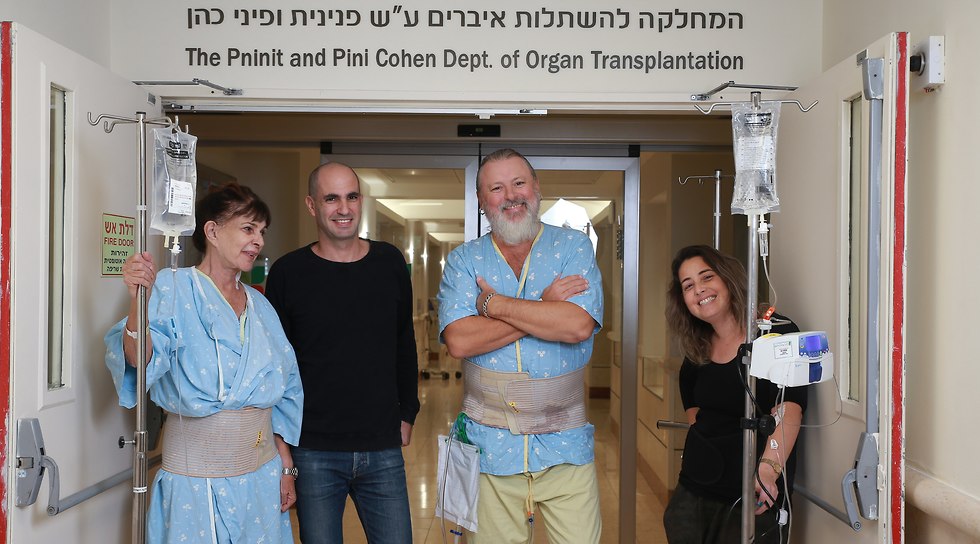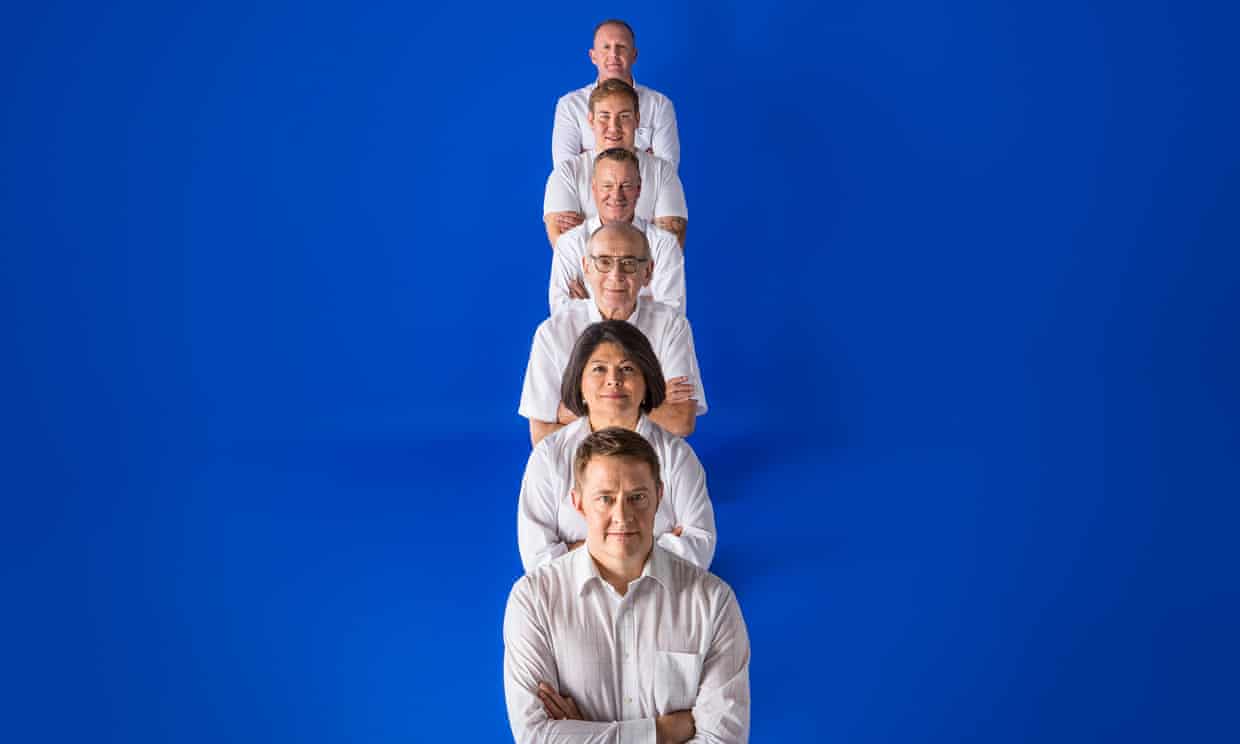The Guardian has a podcast about a British kidney exchange involving three patient-donor pairs. They call it a "chain" but they mean a cycle--it's a cycle of gift giving. You can listen at the link.
Would you give your kidney to a stranger?
The UK’s living donor scheme allows six people to enter a chain, and three of them will get a new kidney from a stranger. Rachel Williams speaks to six participants.
"The UK’s living donor scheme allows six people to enter a chain, and three of them will get a new kidney from a stranger. Such chains are anonymous but, for the first time, the Guardian’s Rachel Williams has brought together six participants.
In today’s episode, we hear from those giving and receiving a kidney, and Williams explains how the matches are made possible. "
*************
And from YNet, a story of a non-directed donor who became a directed donor and part of a cycle with four patient-donor pairs:
The kidney club: Doctors at Beilinson Hospital performed an extraordinary 8-way kidney surgery involving 4 donors and 4 recipients brought together by Matnat Chaim, dedicated to encouraging altruistic kidney donations.
"The transplant chain was facilitated by Matnat Chaim, an Israeli non-profit dedicated to encouraging healthy volunteers to donate kidneys to patients requiring a transplant. The organization, which has already facilitated 626 transplants to date, was founded in 2007 by Rabbi Yeshayahu Heber after he found himself needing a kidney, finding a donor and then setting out to help others who were in the same predicament.
"This kidney donor chain began with altruistic donor Benjamin, who donated to a man named Lee. Yardena, Lee’s partner, in turn donated a kidney to a woman named Leah, whose son, Yonatan, donated a kidney to a man named Suheib. Suheib’s mother, Maison, then donated her kidney to a woman named Gil—who was meant to be the original recipient of the kidney donated by Benjamin.
""I approached Matnat Chaim Chairman Rabbi Heber and asked him to help me find a kidney donor," said Gil, 36, adding, "to my delight, Benjamin, a person I don’t even know, agreed to donate his kidney … unfortunately though he wasn’t a match.”
"After tests conducted by doctors at Beilinson ahead of the planned cross-transplant, a possibility arose for Gil to be at the receiving end of a new kidney.
"We have all become like family," Gil continued, “All of us are from a different background—religious, secular, right and left-wing, Jews and Arabs—there is now a special connection between us."
*********
See my previous posts on Matnat Chaim
******
Gift giving rings have for some reason reminded me today of the anthropological literature on gift giving in cycles through Kula rings in New Guinea, studied by the early anthropologist/ethnographer Bronisław Malinowski.
Merry Xmas to all of you for whom today (or yesterday) is a day of gift giving.
Would you give your kidney to a stranger?
The UK’s living donor scheme allows six people to enter a chain, and three of them will get a new kidney from a stranger. Rachel Williams speaks to six participants.
"The UK’s living donor scheme allows six people to enter a chain, and three of them will get a new kidney from a stranger. Such chains are anonymous but, for the first time, the Guardian’s Rachel Williams has brought together six participants.
In today’s episode, we hear from those giving and receiving a kidney, and Williams explains how the matches are made possible. "
*************
And from YNet, a story of a non-directed donor who became a directed donor and part of a cycle with four patient-donor pairs:
The kidney club: Doctors at Beilinson Hospital performed an extraordinary 8-way kidney surgery involving 4 donors and 4 recipients brought together by Matnat Chaim, dedicated to encouraging altruistic kidney donations.
 |
| the 4 recipients |
"This kidney donor chain began with altruistic donor Benjamin, who donated to a man named Lee. Yardena, Lee’s partner, in turn donated a kidney to a woman named Leah, whose son, Yonatan, donated a kidney to a man named Suheib. Suheib’s mother, Maison, then donated her kidney to a woman named Gil—who was meant to be the original recipient of the kidney donated by Benjamin.
""I approached Matnat Chaim Chairman Rabbi Heber and asked him to help me find a kidney donor," said Gil, 36, adding, "to my delight, Benjamin, a person I don’t even know, agreed to donate his kidney … unfortunately though he wasn’t a match.”
"After tests conducted by doctors at Beilinson ahead of the planned cross-transplant, a possibility arose for Gil to be at the receiving end of a new kidney.
"We have all become like family," Gil continued, “All of us are from a different background—religious, secular, right and left-wing, Jews and Arabs—there is now a special connection between us."
*********
See my previous posts on Matnat Chaim
******
Gift giving rings have for some reason reminded me today of the anthropological literature on gift giving in cycles through Kula rings in New Guinea, studied by the early anthropologist/ethnographer Bronisław Malinowski.
Merry Xmas to all of you for whom today (or yesterday) is a day of gift giving.







